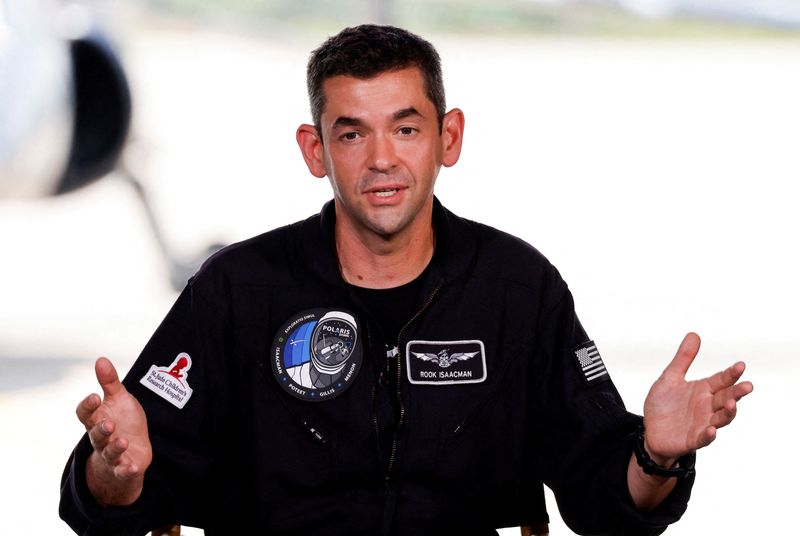By Joey Roulette
ORLANDO (Reuters) -U.S. President-elect Donald Trump's pick for NASA administrator, tech billionaire Jared Isaacman, said on Wednesday his planned private astronaut missions with Elon Musk's SpaceX may be paused as he prepares to enter government service.
"The future of the Polaris (NYSE:PII) program is a little bit of a question mark at the moment," Isaacman, who was tapped by Trump last week to lead NASA, said in response to a question at the Spacepower 2024 conference in Orlando. "It may wind up on hold for a little bit."
Isaacman, a private astronaut and billionaire founder of payment processing company Shift4 Payments, owns the Polaris program, a series of private missions to space on SpaceX vehicles that have made him a key customer and associate of Musk.
Making his first public appearance since being picked to lead NASA, Isaacman in an on-stage interview before a crowd of U.S. Space Force members raved about advances in the U.S. space industry such as reusable rockets and asteroid mining but offered no details on how he would lead NASA.
The prospective nominee is poised to boost private-sector momentum in space and support SpaceX's goal to send uncrewed Starship rockets to Mars this decade as head of a $25 billion federal agency focused heavily on returning astronauts to the moon.
Isaacman, 41, has flown to space twice on SpaceX's Crew Dragon capsule in missions he paid for, helping Musk's space company push the boundaries of what non-government actors can do in Earth's orbit. In his most recent mission in September, Polaris Dawn, Isaacman and his crew became the first private spacewalkers.
Two more Polaris missions were planned in the coming years, including one on SpaceX's in-development Starship rocket. But his selection by Trump to helm NASA raised immediate questions about whether he would cut ties with the missions or wind down the program.
Isaacman has spent hundreds of millions of dollars on his SpaceX missions and helped fund development of the SpaceX-built spacesuit that he wore in his spacewalking mission.
Though SpaceX has its own private astronaut mission in the works and provides its Crew Dragon fleet to other astronaut companies such as Axiom and Vast, the Polaris program offered Musk's company a key source of revenue and a close early partner for its nascent private astronaut business.

SpaceX since 2020 has routinely flown NASA astronauts to and from the International Space Station using Crew Dragon, a gumdrop-shaped pod developed under the agency's Commercial Crew program meant to seed development of spacecraft that can also be used by private customers.
Boeing (NYSE:BA)'s Starliner is also being developed under that NASA program but has been marred for years with technical challenges and two astronauts it delivered to the ISS in June are due to return on Crew Dragon in February.